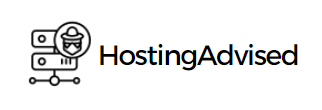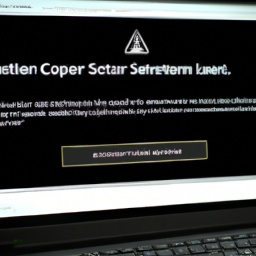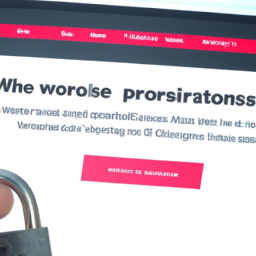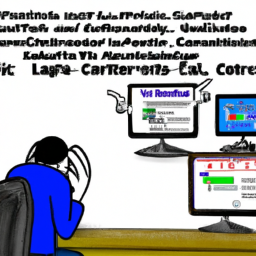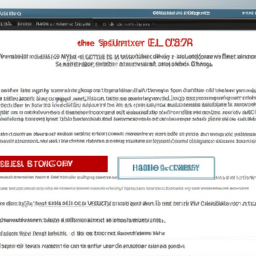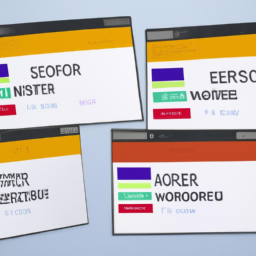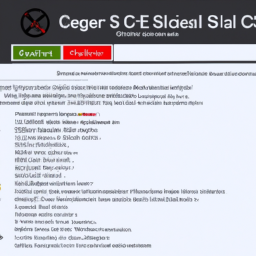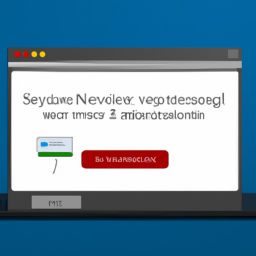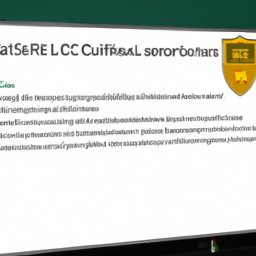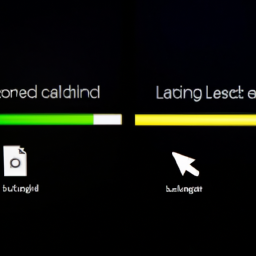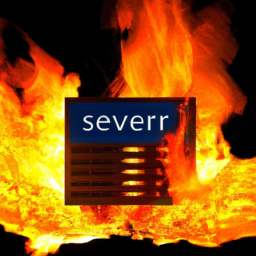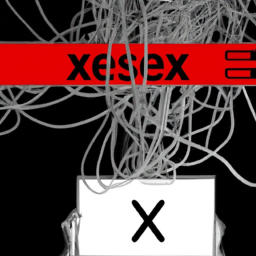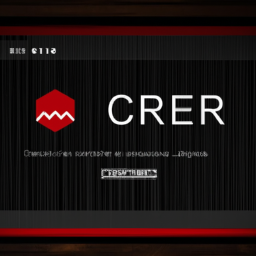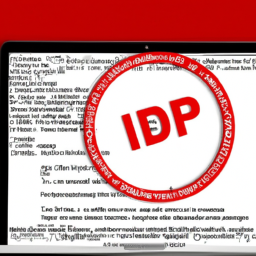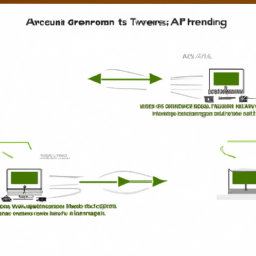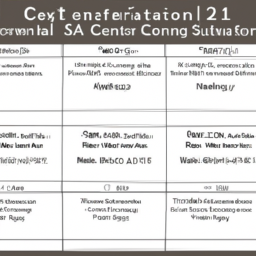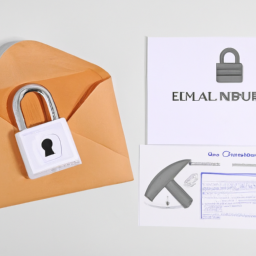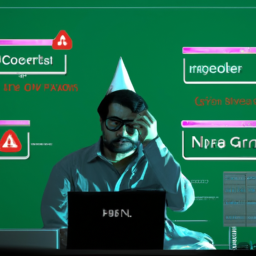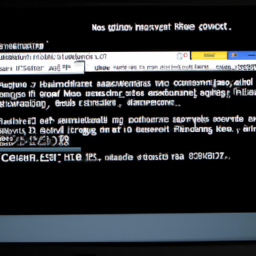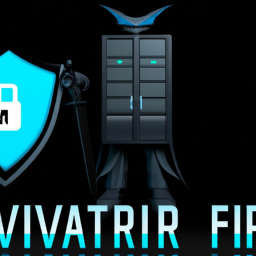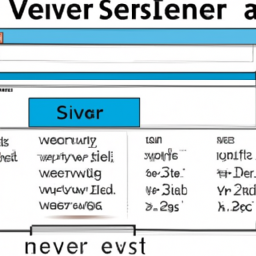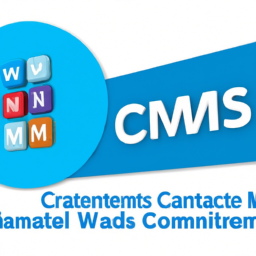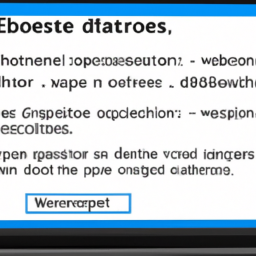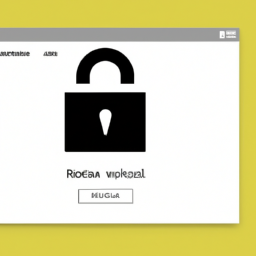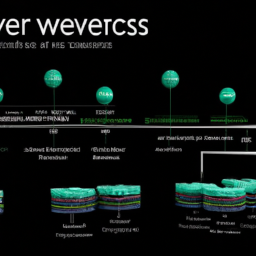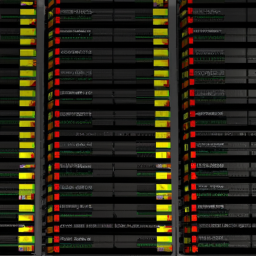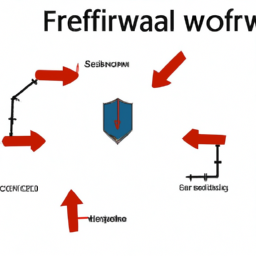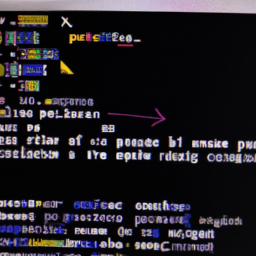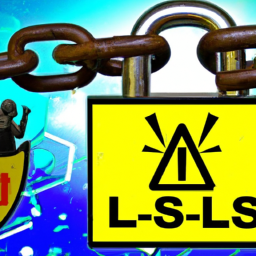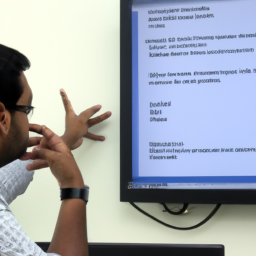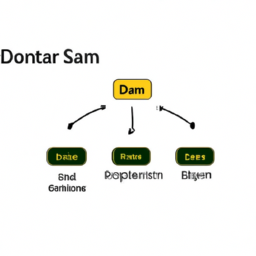Have you ever heard the saying, ‘You can’t fit a square peg in a round hole’? Well, when it comes to web hosting, the same principle applies. Just like a square peg needs a square hole, your website needs a web hosting provider that is compatible with the PHP version it is built on. Understanding the importance of PHP version compatibility is crucial for the success of your website.
In this article, we will delve into the evolution of PHP versions and why it is essential to ensure compatibility. We will also explore how to check PHP version compatibility and the benefits of using the latest PHP version. Additionally, we will discuss the significance of choosing a web hosting provider that supports the PHP version your website requires.
Finally, we will emphasize the importance of regularly updating PHP versions to ensure optimal performance and security. So, let’s dive in and unravel the intricacies of PHP version compatibility in web hosting.
Key Takeaways
- PHP version compatibility is crucial for smooth and efficient website functioning.
- Using an outdated PHP version can lead to slower page load times, compatibility issues, and security risks.
- Upgrading to the latest PHP version improves website performance and provides enhanced features.
- Regularly updating PHP versions is crucial for optimal performance and security.
The Evolution of PHP Versions
Did you know that PHP versions have evolved over time, shaping the way websites are built and hosted?
PHP, a popular server-side scripting language, has undergone several evolutionary changes since its inception. Each new version brings improvements, bug fixes, and new features that have a significant impact on web development.
For example, PHP 5 introduced object-oriented programming (OOP) capabilities, allowing developers to write more organized and modular code. PHP 7, on the other hand, brought significant performance enhancements, making websites faster and more efficient.
These evolutionary changes in PHP versions have revolutionized the way developers build and maintain websites, ensuring better functionality, security, and performance. Understanding the importance of PHP version compatibility is crucial for web hosting, as it ensures that websites run smoothly and efficiently.
The Significance of PHP Version Compatibility
When it comes to choosing a web hosting provider, you’ll want to make sure that the PHP version your website requires is compatible with their servers. The significance of PHP version compatibility cannot be overstated.
Using an outdated PHP version can have a detrimental impact on your website’s performance and functionality. It can result in slower page load times, compatibility issues with newer plugins and themes, and even potential security risks. Outdated PHP versions often lack the necessary security patches, making your website vulnerable to attacks.
Additionally, if your hosting provider’s servers do not support the PHP version your website is built on, it can lead to compatibility issues and your website may not function properly. To ensure compatibility, it’s crucial to check the PHP version supported by your potential web hosting provider.
How to Check PHP Version Compatibility
To ensure your website runs smoothly, you’ll want to know if your chosen provider supports the PHP version your site requires. Checking PHP version compatibility is crucial for troubleshooting any issues that may arise.
Here’s how you can check the PHP version:
- Log in to your web hosting control panel.
- Look for the PHP settings or PHP configuration option.
- Check for the PHP version listed.
If the version is not compatible with your site’s requirements, you may need to upgrade or switch to a different hosting provider.
By checking the PHP version, you can proactively address any compatibility issues and ensure that your website functions optimally.
In the next section, we’ll discuss the benefits of using the latest PHP version and how it can enhance your website’s performance.
The Benefits of Using the Latest PHP Version
By using the latest PHP version, you’ll experience improved website performance and enjoy enhanced features.
Upgrading to the latest PHP version offers several advantages and improvements. First and foremost, it ensures that your website runs faster and more efficiently. The latest PHP version comes with performance optimizations and bug fixes, which can significantly boost your website’s speed and responsiveness.
Additionally, using the latest PHP version allows you to take advantage of new and advanced features that were introduced in the update. These features can enhance the functionality of your website and provide better user experiences.
To ensure you can fully utilize the benefits of the latest PHP version, it’s crucial to choose a web hosting provider that supports and offers compatibility with the specific PHP version you need.
Choosing a Web Hosting Provider with PHP Version Compatibility
Finding a web hosting provider that supports and offers compatibility with the latest PHP version is like finding a key that unlocks the full potential of your website. It not only ensures optimal performance but also provides a range of benefits for your website.
Here are two factors to consider when choosing a web hosting provider for PHP version compatibility:
-
Enhanced Website Performance:
- PHP version compatibility allows your website to take advantage of the latest features and improvements, resulting in faster loading times and improved overall performance.
- Compatibility ensures that your website functions seamlessly with the latest PHP version, minimizing any potential errors or compatibility issues.
-
Security and Stability:
- Upgrading to the latest PHP version ensures that your website is protected against security vulnerabilities and exploits.
- Web hosting providers that offer PHP version compatibility prioritize the stability of their servers, ensuring a reliable hosting environment for your website.
In the subsequent section, we’ll explore the importance of regularly updating PHP versions for continued website performance and security.
The Importance of Regularly Updating PHP Versions
To ensure optimal performance and security for your website, it’s crucial to regularly update your PHP versions. Best practices for keeping your PHP version up to date include staying informed about the latest PHP releases, testing updates in a development environment before implementing them on your live site, and utilizing version control systems to track changes.
However, updating PHP versions may present challenges such as compatibility issues with existing code or plugins. To overcome these challenges, it’s important to thoroughly test the updates, ensure all plugins and themes are compatible, and consult with developers or support forums for guidance and solutions.
Best practices for keeping your PHP version up to date
Staying current with your PHP version is crucial for ensuring the optimal performance and security of your website. Updating PHP versions regularly is not only important for accessing new features and enhancements, but it also helps to resolve any compatibility issues that may arise.
By keeping your PHP version up to date, you can ensure that your website runs smoothly and efficiently, providing a seamless experience for your users. Troubleshooting PHP compatibility can be a complex task, but there are some best practices you can follow.
Firstly, always check the PHP documentation and release notes for any updates or changes. Additionally, it’s important to test your website on a staging environment before updating the PHP version on your live site.
By following these practices, you can minimize potential challenges and ensure a smooth transition when updating your PHP version.
Potential challenges and solutions for updating PHP versions on your website
When updating your website’s PHP version, you may encounter potential challenges that can be overcome with careful planning and thorough testing. Updating PHP versions is crucial for security, performance, and compatibility reasons. Here are some potential challenges you may face and their solutions:
-
Incompatibility with existing code: Some older PHP code may not work properly with newer versions. To troubleshoot this, you can review your code for deprecated functions and update them accordingly. Additionally, you can use tools like PHP Compatibility Checker to identify compatibility issues before updating.
-
Plugin and theme compatibility: Updating PHP versions may cause conflicts with plugins and themes. To address this, ensure all your plugins and themes are up to date and compatible with the PHP version you’re updating to. Consider reaching out to the plugin and theme developers for any necessary updates or alternative solutions.
-
Server configuration issues: When updating PHP versions, you may encounter server configuration issues. It’s important to work closely with your web hosting provider to ensure the server is properly configured for the updated PHP version. They can assist in resolving any configuration-related challenges.
By understanding these potential challenges and following the mentioned solutions, you can successfully update your website’s PHP version while minimizing any compatibility issues.
Frequently Asked Questions
What are some common issues that can arise from using an outdated PHP version in web hosting?
Using an outdated PHP version in web hosting can lead to several downsides. Firstly, it can severely impact the functionality of your website. Outdated PHP versions may lack crucial security updates, making your website more vulnerable to attacks.
Additionally, newer features and optimizations introduced in newer PHP versions will not be available to you, potentially hindering the performance and user experience of your website.
Therefore, it’s crucial to keep your PHP version up to date to ensure smooth and secure website operation.
Are there any security risks associated with running an older PHP version on a website?
Running an older PHP version on your website can pose significant security risks. Outdated PHP versions often have known vulnerabilities that hackers can exploit to gain unauthorized access to your website and its data.
To maintain PHP version security in web hosting, it’s crucial to regularly update to the latest stable version. Additionally, implementing best practices such as keeping plugins and themes up to date and regularly monitoring for security patches can help mitigate the risk of website vulnerability.
Can using an unsupported PHP version affect the performance of a website?
Using an unsupported PHP version can definitely impact the performance of your website. To check the PHP version of your website, you can use phpinfo() function or contact your web hosting provider.
It’s crucial to keep your PHP version up to date to ensure optimal performance and security. Best practices for updating PHP versions include regularly checking for updates, testing compatibility with your website, and taking backups before making any changes.
This will help prevent any potential performance issues and ensure smooth operation of your website.
How often should I update my PHP version to ensure compatibility with the latest web technologies?
To ensure compatibility with the latest web technologies, it’s important to update your PHP version regularly. The right time to update depends on when new versions are released and the specific needs of your website.
It’s generally recommended to update as soon as a stable version is available. However, you can skip versions when updating as long as you carefully review the release notes and ensure compatibility with your website’s code and plugins.
Are there any tools or plugins available to help automatically update PHP versions on my website?
Yes, there are tools and plugins available that can help you automatically update the PHP version on your website. These tools and plugins are designed to make the updating process seamless and hassle-free.
They can check for the latest PHP version, notify you of any updates, and even automatically update the PHP version for you. By using these tools and plugins, you can ensure that your website remains compatible with the latest web technologies without the need for manual updates.
Conclusion
In conclusion, understanding the importance of PHP version compatibility in web hosting is crucial for the success of your website. By ensuring that your web hosting provider supports the latest PHP version, you can take advantage of improved performance, security, and new features.
For example, imagine a business owner who updates their PHP version and experiences a significant increase in website loading speed. This increase in speed results in higher customer satisfaction and increased sales.
Regularly updating PHP versions is a proactive approach to problem-solving and staying ahead in the fast-paced world of web development.
